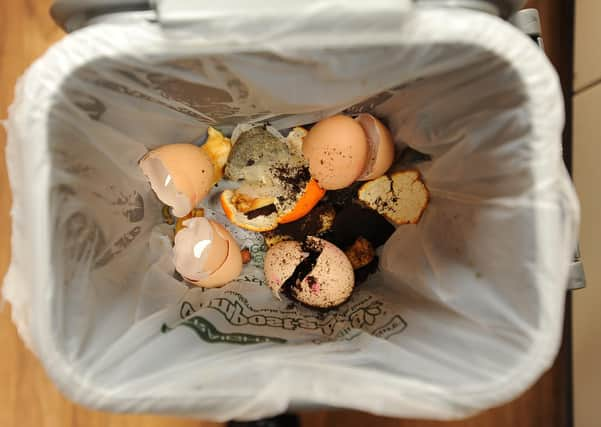West Sussex’s first food waste collection trial given the go-ahead


The weekly collections, which will be funded by West Sussex County Council, are scheduled to start in March and will involve 1,150 properties in the Arun district.
The trial run was given the nod at a meeting of the district council’s cabinet on Monday (November 16).
Advertisement
Hide AdAdvertisement
Hide AdA pilot was due to start in Mid Sussex earlier this year, but the project was put on hold due to the pandemic.
It will use a ‘1-2-3’ collection system, as follows:
1. Introducing weekly food waste collections and an optional, free subscription service of Absorbent Hygiene Product collections e.g. nappies and incontinence waste;
2. Retaining existing fortnightly recycling collections and the garden waste charged, subscription service. Small electrical items will be also collected fortnightly.
3. Three weekly general rubbish collections in new 240ltr wheelie bins.
Advertisement
Hide AdAdvertisement
Hide AdLeader Dr James Walsh said: “We all have a role to play in reducing our waste as far as possible and recycling as much of what is left as we can.
“We know that significant volumes of food are currently wasted in Arun.
“This trial is designed to test assumptions, to gauge the views of a sample of our residents and to provide valuable data which we can consider and use to inform future decision making.”
He was certainly right about the amount of food thrown away by Arun residents.
Advertisement
Hide AdAdvertisement
Hide AdA report to the meeting showed that 12,123 tonnes was binned during 2018, two-thirds of which was described as edible.
If the trial is successful and the collections become permanent, Arun’s recycling figures will be given a boost.
Government regulations require all local authorities to meet recycling targets of 50 per cent this year, 55 per cent by 2025 and 65 per cent by 2035.
Arun’s figures is currently 42.84 per cent.
While no details were given about which roads would be included in the trial, members were told that those chosen to take part would be given a 240 litre wheelie bin complete with internal and external caddies for the various waste.
Advertisement
Hide AdAdvertisement
Hide AdThe food waste will be collected by Biffa, while the hygiene products will be collected by Medisort, the council’s clinical waste contractor.
The report said the food waste would be treated ‘more effectively and efficiently’ than the current processes, using anaerobic digestion to break it down into soil fertiliser and biogas, which can be used for generating energy.
Dr Walsh said: “If ultimately we can reduce the amount of food wasted and recycle as much of what is left as possible, then this will be a positive development for all concerned.”
After the meeting, Samantha-Jayne Staniforth, Arun’s cabinet member for neighbourhood services, said: “With weekly food waste and absorbent hygiene product collections, the amount of general rubbish produced will be much less and almost all of the potentially ‘smelly’ materials will be removed. This is an enhanced service trial with extra collections, and I am interested to hear the feedback from those that will be involved in the trial.”
Advertisement
Hide AdAdvertisement
Hide AdDeborah Urquhart, the county council’s cabinet member for environment, said: “In December 2018, the Government published its Resources and Waste Strategy for England. The strategy proposes implementation of separate food waste collections from all households, from 2023 and it is therefore likely that all authorities will be statutorily required to separately collect food waste within the next 3 years.
“This 1-2-3 trial is the first of its type to take place in West Sussex. Our aim is to gain valuable feedback from residents, enabling a full review to assist in re-shaping and enhancing rubbish and recycling collections for the district and across the county in the future.”
More information can be found at www.arun.gov.uk/123-collection-trial
The waste composition took place in 2018 and the percentages identified are calculated with 2019/2020 Residual Waste tonnage from ADC. Please note that these figures are a snapshot in time but serve as useful data for us to continue to review and monitor changes to recycling rates and tonnages in West Sussex.
Total residual waste = 28,458.5 tonnes
Total food waste = 12,123 = 42.6% of the residual bin
Edible food = 8,244 tonnes = 29% of the residual bin
Inedible food = 3,865 tonnes = 13.6% of the residual bin
Of this 6,110 tonnes could have been composted = 21.47% of the residual bin